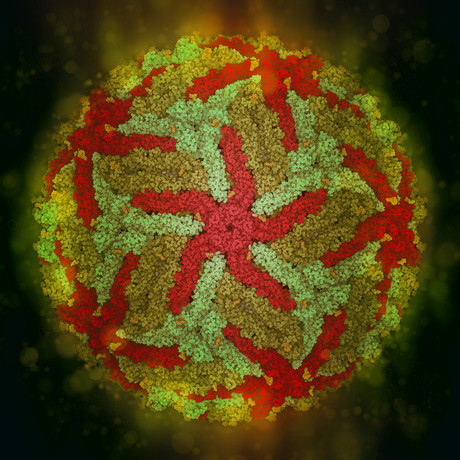19th International Microscopy Congress kicks off in Sydney

More than 2000 of the world’s top scientific brains are in Sydney this week for the 19th International Microscopy Congress (IMC19) in Sydney.
The scientists have come together to explore new findings, share research and experience the latest state-of-the-art scientific microscopy equipment at IMC19, being held at ICC Sydney from 9–14 September. The event centres around the theme Microscopy: Bridging the Sciences, promoting collaboration across the primary streams of Frontier Issues; Instrumentation and Techniques; Physical and Life Sciences.
Field emission guns and new electron exploration systems are two of the many innovations and leading advancements in medical science that will be on show at the event. Held every four years, IMC19 will see presentations by world-renowned thought leaders and Nobel Laureates Professor Dan Shechtman and Professor Joachim Frank, from The Technion Israel, who won the 2017 Nobel Prize in chemistry for his work as founder of the single-particle cryo-electron microscopy (cryo-EM).
By bringing together experts working across a multitude of academic and industrial fields, IMC19 will showcase, and define, how clear, crisp microscopic magnification helps advance life on Earth. The genesis of our future’s most significant discoveries including reproductive breakthroughs and a step towards a cure for cancer can be found at this world-famous science event and the multimillion-dollar equipment on display.
Tek-Event, a Sydney-based manufacturer of equipment dedicated to the field of human and animal reproductive technologies (ART), will showcase its range of brand new technologies providing a safe environment for tissue observation.
Dieter Regel, Sales Director, Tek-Event, commented on the increasing requirement to provide accurate temperature control as well as CO2 and humidity in the latest technologies advancing human IVF laboratories, animal research and veterinary ART facilities.
“Researchers who have the requirement to view cells or tissue microscopically are often challenged when their environment is not stable. Tek-Event are excited to showcase our latest Cell-Tek microscope chambers, which help create a controlled environment for examination in many fields of research, including the handling of oocytes and embryos in ART,” said Regel.
Thermo Fisher Scientific will offer attendees a chance to take part in live demonstrations with technical experts working in innovative software and automated microscopy products and showcase a wide range of microscopy solutions.
Attendees can register for a learning lunch with ZEISS, to experience their innovative microscopy technologies and applications. Sessions will cover 3D electron microscopy, X-ray microscopy and analytical microscopy, and guests can win a ZEISS VR One Plus virtual reality headset.
Tek-Event, Thermo Fisher Scientific and ZEISS will be joined by over 60 other confirmed exhibitors at IMC19, including Jeol, Quorum Technologies, Tescan, Technoorg Linda Co Ltd, Delmic, Hitachi, Leica and Nano Technologies Solutions.
Delegates will also enjoy a range of activities and a vibrant social program in conjunction with the congress, aimed to engage attendees and help spark new connections among the scientific community.
The IMC19 Outreach Learning Program will host 21 schools across Australia, to offer students the chance to undertake four storyline-based challenges, featuring the latest light and microscopy equipment alongside leading researchers and instrument specialists.
Microscopy Australia will present a unique exhibition during the congress, Stories & Structures — New Connections, bringing together microscopy and Indigenous art through visual and storytelling parallels. The exhibition will showcase 21 artworks and 24 micrographs, as well as feature live painting by Indigenous artist Kurun Warun in residence.
'Phantom chemical' in drinking water finally identified
Researchers have discovered a previously unknown compound in chloraminated drinking water —...
Flinders facility to use the micro realm to understand the past
AusMAP aims to revolutionise the ways scientists address key questions and grand challenges in...
A new, simpler method for detecting PFAS in water
Researchers demonstrated that their small, inexpensive device is feasible for identifying various...




